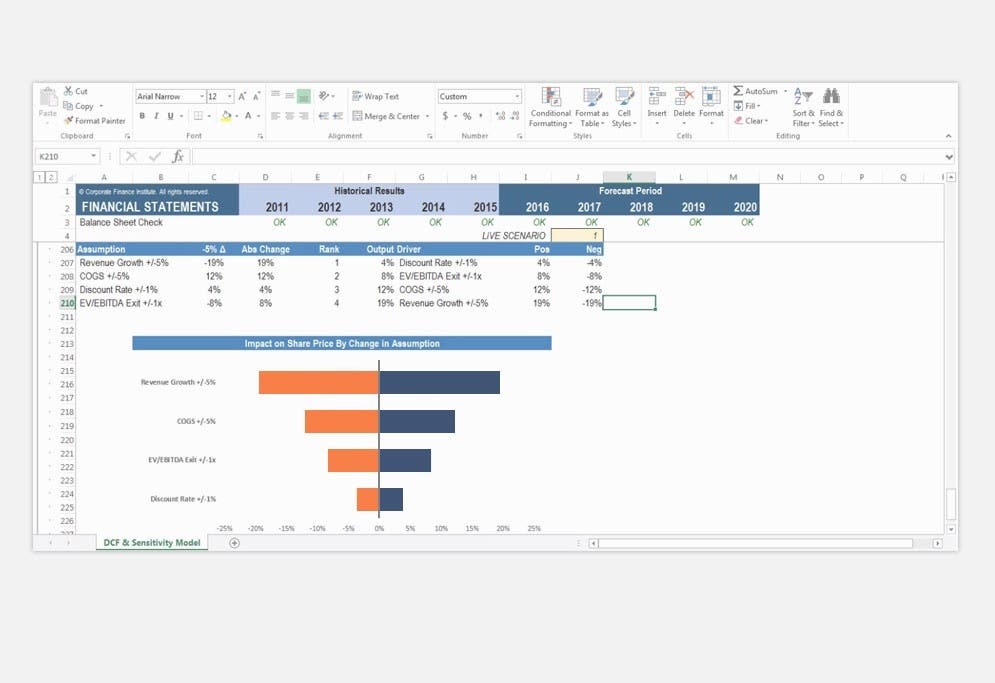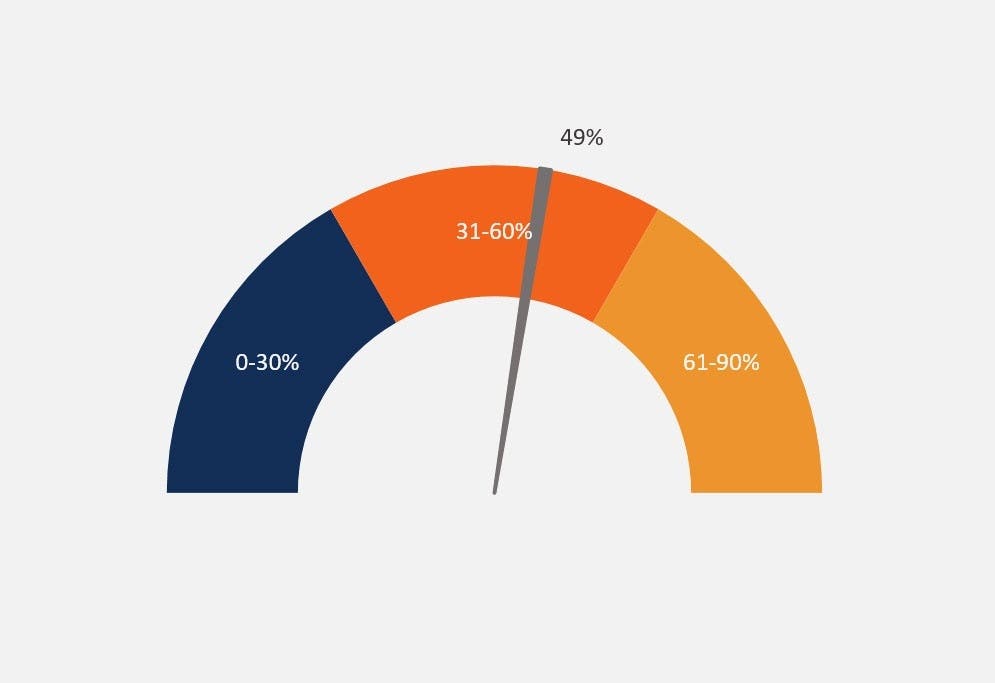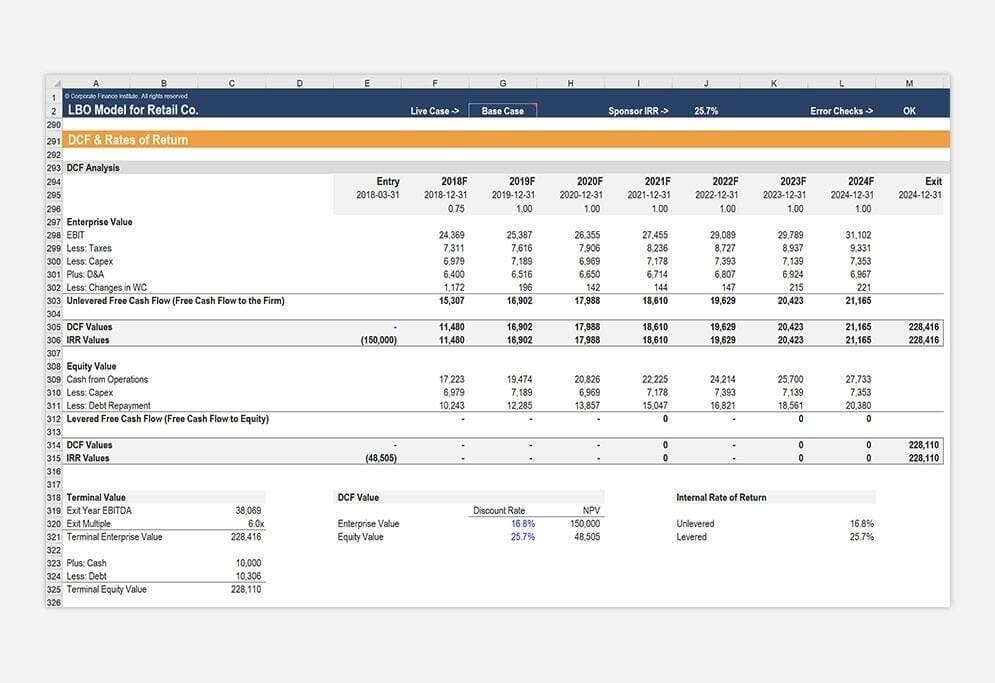Top 10 ESG Courses and Certifications in 2024
ESG, short for Environmental, Social, and Governance, is a pledge to sustainability, ethical conduct, and responsible governance — and it’s reshaping the corporate landscape.
With sustainability in the global spotlight, businesses are realizing that ESG not only benefits the planet but also improves their bottom line. Consumers and investors are getting pickier about where they invest their money, favoring companies that care about more than just profits.
So, what’s in it for you? The rising demand for ESG experts also creates an exciting career opportunity. To help you understand this dynamic field and propel your professional journey forward, here are the top ESG courses and certifications you can consider enrolling in.

Understanding ESG Courses and Certifications
ESG courses explore Environmental aspects like a company’s impact on climate and resources; Social considerations involving human rights, diversity, and community engagement; and Governance, which delves into ethical leadership, transparency, and accountability.
Conversely, certifications in ESG serve as tangible proof of dedication and proficiency. This competitive advantage is crucial in a market where responsible and sustainable practices matter.
Getting educated in ESG has a twofold effect: First, it deepens your understanding of critical issues shaping the business world. Second, it enables you to integrate ESG principles into decision-making processes. That’s why enrolling in an ESG course or certification is a no-brainer for anyone looking to make a meaningful impact in the evolving corporate sector.
Top ESG Courses of 2024
Take a look at the top ESG courses of 2024:
Free Online ESG Courses
1. Introduction to ESG: Corporate Finance Institute
Introduction to ESG by CFI delves into ESG principles and underscores their significance in financial decision-making and risk management.
Designed for analysts, investment professionals, and business students eager to understand ESG’s impact on business operations and strategies, this course provides a comprehensive exploration of each ESG aspect. It meticulously examines how these principles influence a company’s performance and stakeholder relations. By enrolling, you’ll gain the skills to identify key ESG issues, analyze associated risks and opportunities, and effectively transform ESG data into actionable insights.
2. ESG Risks and Opportunities: University of Pennsylvania
UPenn’s ESG Risks and Opportunities educates you on the foundations of ESG. It explores market reactions to ESG factors and strategies for value creation through strategic investments. Tailored for professionals seeking to master risk management and integrate ESG into investment strategies, you can expect to tackle challenges in incorporating ESG into portfolios.
In this course, you’ll study insightful case studies and risk management and decision-making approaches. You’ll also learn about materiality in ESG, assess risk and opportunity areas, optimize portfolios with ESG factors, and create effective risk management plans sensitive to ESG considerations.
Paid Online ESG Courses
3. Sustainability and Corporate ESG: Marcus Oliveira, Guilherme Queiroz
The Sustainability and Corporate ESG course is designed to help you drive sustainable practices within organizations by understanding ESG principles and their real-world application. From sustainability principles to governance frameworks and methods for integrating sustainability into business strategies and finance decisions, this course equips you with the knowledge to make a difference.
Grasp sustainability principles, apply ESG criteria in decision-making, and develop innovative solutions for climate change and resource management. Gain insights into implementing governance frameworks and study the influence of governments and NGOs on businesses.
4. Sustainable Finance and Investment: Yale School of Management
Developed by the Yale School of Management Executive Education, Sustainable Finance and Investment focuses on understanding the ESG ecosystem and using ESG data to enhance financial performance. This course equips you with the skills to incorporate environmental, social, and governance (ESG) factors into investment strategies.
Enroll to explore challenges related to ESG factors in investment decision-making, their impact on asset pricing, and portfolio management models. You’ll also gain insights into assessing investments, examining the role of ESG in debt and private equity, and optimizing portfolios for sustainable returns.
University ESG Programs
5. Environmental, Social and Governance Leadership: A Pathway to Business Sustainability: University of Cambridge
Sign up for the Environmental, Social, and Governance Leadership program to explore the adept implementation of ESG policies, emphasizing considerations for consumers, stakeholders, and competitors. Offered by Cambridge Judge Business School, this program educates students in strategies for sustainability and attaining net-zero emissions.
Get insights into foundational issues, stakeholder orientations, organizational purpose, and net-zero initiatives. You’ll also learn about circularity in supply chains, ESG reporting, and how to integrate ESG into governance structures and business models.
6. INSEAD Business Sustainability Programme: INSEAD
Designed for senior executives and decision-makers, the INSEAD Business Sustainability Programme provides tools to build and implement effective sustainability strategies. It explores challenges in creating sustainable business models and strategic opportunities and features insights from thought leaders and experts.
By enrolling in this course, you’ll deeply understand the business case for sustainability, strategies for transformation, and frameworks for implementation. The program also covers sustainability execution frameworks and addresses measurement, reporting, and financing aspects.
Top ESG Certifications of 2024
Generalist ESG Certifications
7. Certificate in ESG Investing: CFA Institute
Offered globally by the CFA Institute, the Certificate in ESG Investing equips professionals with the skills to seamlessly integrate ESG factors into investment decisions. The program’s acknowledgment of the increasing importance of sustainability in investment portfolios aligns perfectly with the current trend of prioritizing ethical and responsible practices.
By gaining knowledge in responsible investment approaches, understanding the underlying issues of ESG factors, and exploring the sustainability context, you position yourself to meet the evolving demands of the industry and clients.
Moreover, you gain a comprehensive understanding of market relevance and the risks and opportunities associated with ESG considerations. Armed with this knowledge, you can better analyze ESG factors’ impact on industry and company performance across various asset classes.
8. Certified ESG Analyst® (CESGA): EFFAS
The EFFAS Certified ESG Analyst® (CESGA) program, crafted by practitioners for practitioners, provides a comprehensive understanding of ESG issues. It highlights often-overlooked areas, including asset classes, due diligence, ESG data, reporting, and regulation.
Enrolling in the program will educate you in various asset classes, systematic ESG valuation approaches, challenges associated with ESG data, and the regulatory landscape. You’ll also learn efficient methods to integrate ESG information into investment analysis, acknowledging the growing significance of ESG factors in capital allocation processes.
Specialist ESG Certifications
9. ESG Certificate Program: Corporate Finance Institute
CFI’s ESG Certificate Program offers a condensed curriculum covering essential skills required in today’s financial landscape. It provides theoretical knowledge and practical applications to navigate corporate pressures and stakeholder expectations effectively.
Learn key ESG concepts such as materiality, climate risks, and governance issues. Develop skills in ESG analysis, scorecard building, emissions calculation, ESG integration into financial models, and identifying ESG trends in capital markets. The course also emphasizes translating ESG information into business intelligence and creating dashboards for stakeholders.
10. FSA® Credential: IFRS Foundation
The FSA Credential, offered by the IFRS Foundation, verifies professionals’ expertise in sustainability disclosure and analysis. It equips candidates with the knowledge to understand the link between sustainability and financial performance.
The FSA Credential evaluates candidates on sustainability disclosure landscapes, IFRS Sustainability Disclosure Standards, the role of material sustainability information in corporate strategies and investor decisions, and sustainability-related risks and opportunities impacting financial positions. The program also teaches skills like normalizing sustainability data for analysis, connecting it to financial metrics, and applying it to valuation models.
Key Takeaways and Benefits of Pursuing ESG Courses and Certifications
Beyond boosting your career opportunities, enrolling in an ESG course or certification enables you to advocate for responsible business practices, support sustainable development, and contribute to addressing critical environmental and social issues.
Here’s a close look at the benefits:
- Comprehensive ESG framework understanding: You deeply understand the pivotal role environmental, social, and governance factors play in both investment decisions and corporate strategies. This knowledge allows you to assess the broader impact of business activities on society and the environment.
- Effective integration into investment decisions: You become adept at evaluating how ESG factors influence company performance across various asset classes, enabling you to create and manage investment portfolios that align with sustainability goals.
- Informed decision-making for long-term value: ESG education empowers you to make well-informed decisions that prioritize sustainability, ethical practices, and social responsibility. Understanding the broader implications of your actions on stakeholders and the environment enables you to create lasting value while reducing negative impacts.
- Mastery in risk management and opportunity identification: By identifying potential risks related to environmental issues, social practices, and governance structures, you can create strategies to not only mitigate risks but also capitalize on opportunities for sustainable growth.
- Competitive edge and market relevance: Holding ESG certifications validates your expertise and commitment to responsible business practices. Employers and clients want professionals who can expertly navigate ESG considerations, making your expertise highly relevant across industries and giving you a competitive edge.
- Contribution to a sustainable future: Armed with the knowledge and skills gained from ESG courses, you can drive positive organizational change, champion ethical decision-making, contribute to global sustainability initiatives, and play a crucial role in building a more sustainable future.
Additional ESG Resources to Check Out
Books
- The Sustainability Mindset: Using the Matrix Map to Make Strategic Decisions – by Steve Zimmerman and Jeanne Bell
- Sustainable Investing: Revolutions in Theory and Practice – by Cary Krosinsky and Sophie Purdom
Websites and Online Platforms
- Coursera: Offers various courses on sustainable finance, ESG investing, and corporate social responsibility.
- edX: Provides courses from universities and institutions worldwide on topics such as sustainable business practices and ESG metrics.
- CFA Institute: Offers resources, webinars, and publications related to ESG investing and sustainability.
Industry Events and Conferences
- GreenBiz: Hosts conferences and events focused on sustainable business practices, including ESG considerations.
- Responsible Investor: Offers conferences, webinars, and forums covering ESG integration, impact investing, and sustainable finance.
- PRI in Person: An annual event organized by the PRI, bringing together the global responsible investment community to discuss ESG trends and best practices.
Professional Associations
- Global Impact Investing Network (GIIN): Provides resources, events, and networking opportunities for professionals interested in impact investing and ESG integration.
- Sustainability Accounting Standards Board (SASB): Offers educational resources and events focused on sustainability accounting standards and ESG disclosure.
- Financial Women’s Association (FWA): Provides networking opportunities and events focused on ESG and sustainable finance for women in finance.
And there you have it! Now, you have all the knowledge and tools to drive sustainable practices, making you relevant in a market that increasingly values professionals committed to responsible business practices.
As you move forward, armed with the ability to translate ESG information into business intelligence, identify trends, and create impactful dashboards, you can actively contribute to building a more inclusive and sustainable economy.
Additional Resources
Top 15 Leadership Courses for Finance Professionals in 2024
Selecting the Best Online Training Platform for Your Finance Team
Create a free account to unlock this Template
Access and download collection of free Templates to help power your productivity and performance.
Already have an account? Log in
Supercharge your skills with Premium Templates
Take your learning and productivity to the next level with our Premium Templates.
Upgrading to a paid membership gives you access to our extensive collection of plug-and-play Templates designed to power your performance—as well as CFI's full course catalog and accredited Certification Programs.
Already have a Self-Study or Full-Immersion membership? Log in
Access Exclusive Templates
Gain unlimited access to more than 250 productivity Templates, CFI's full course catalog and accredited Certification Programs, hundreds of resources, expert reviews and support, the chance to work with real-world finance and research tools, and more.
Already have a Full-Immersion membership? Log in





